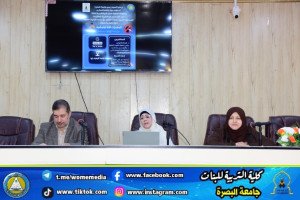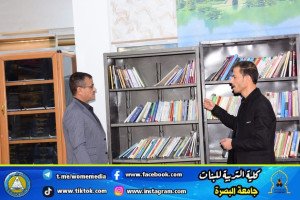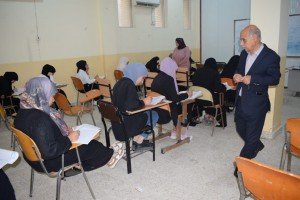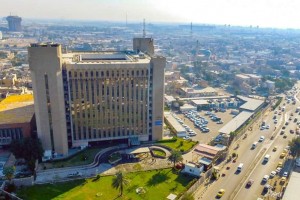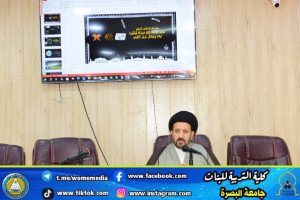
University of Basrah organizes a panel discussion on the impact of climate change on reproductive health
The College of Education for Women at the University of Basra organized a panel discussion on the impact of climate change on reproductive health.
The seminar aimed that climate change is one of the major threats to basic human health requirements. Children, females and the elderly, especially in poor countries, are considered the most vulnerable to climate change and the longest exposed to its health consequences.
The seminar presented by Dr. Ahmed Jassim Al-Hassan, a lecturer in the Department of Geography, dealt with the fact that climate change causes about 250,000 deaths annually for several reasons, including malnutrition and diseases, as the effects of climate change on health have become known and proven, through the deterioration of health requirements of air, water and security quality. food and shelter.
And it touched on global warming, which led to an increase in diseases and deaths caused by heart and respiratory diseases and allergies due to high temperatures and air pollution, and the high rate of mental disorders and communicable diseases due to environmental migration and the destruction of necessary health services resulting from sea level rise, and climate change leads to the spread of diseases. Many deadly diseases have shown extreme sensitivity to temperature changes, which leads to their spread, due to the lack of water, the deterioration of its quality and the change in humidity.
The episode promised that climate-affected diseases are the most deadly diseases in the world, including: malaria, bilharzia, various bacterial and parasitic infections, as well as the emergence of new animal diseases that are contagious to humans, such as: West Nile virus, horse plague and others.
The panel recommended establishing a comprehensive approach by redoubling efforts to empower societies to respond to the challenges posed by climate change, and increasing public awareness of climate change and its impacts by involving the media, as well as conducting comprehensive research on climate change, and increasing regional and global research cooperation to increase opportunities Exchange of knowledge in this field.

